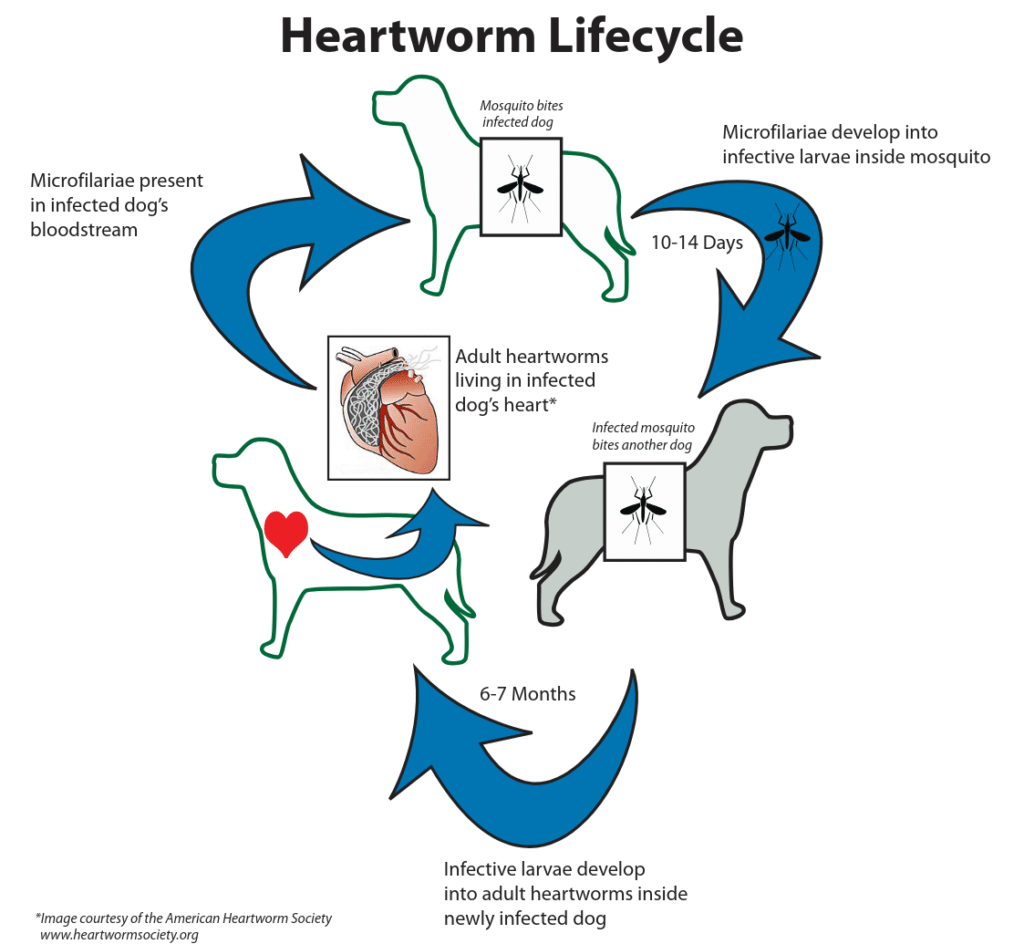Health & Wellness

As you can imagine, PHR has had the opportunity to work with many vets and has also heard feedback about many vets.
If you have a vet you love, Great! Stick with them!
If you are looking for a new vet, here is some wisdom we can share:
Veterinarians are like doctors; they all have the same basic training but have different strengths and weaknesses. You should feel good leaving your baby at the vet. If you ever feel pressured, talked down to, ‘sold’ to, or have concerns that aren’t answered or addressed in a way you understand, then find someone else you connect with better.
Don’t be afraid to interview vets until you find a good fit. Take your new puppy in for a visit and see how you are treated. The staff should be happy to accommodate a visit and answer all of your questions.
For after-hours emergencies in the Spokane area, we recommend Animal Emergency Clinic off the Sprague exit or Emergency Pet Care in Post Falls, ID. We have had to utilize emergency care many times and these are the ONLY TWO emergency clinics we can recommend.
Table of Contents
Medical Records
You have received all original medical records as part of your adoption. We do not have copies, so treat these records with the care they deserve.
Your “PHR Medical Records” will pick up where their Texas records left off. Some treatments will be transferred and noted on the PHR Record if appropriate.
Vaccines
Is my puppy safe to socialize?
Your puppy or adult dog will require vaccines on an ongoing basis to be protected and safe. However, he has received a minimum of two vaccines in our program and is safe to start taking out in the world.
For young puppies, you have a very small window of socialization, so don’t miss the opportunity!
Core Vaccines
Puppies
Need Parvo boosters every two weeks until four months old
Dogs over 4 Months Old
Only require a series of two core vaccines, two weeks apart
DA2PPv - Distemper, Adenovirus type I and II, Parainfluenza and Parvo
 The combo shot often referred to as “Core Vaccines” covers five common diseases. All these diseases are bad, but Parvo (Pv) is always the one we are worried about with puppies.
The combo shot often referred to as “Core Vaccines” covers five common diseases. All these diseases are bad, but Parvo (Pv) is always the one we are worried about with puppies.
Puppies six weeks to six months of age are particularly vulnerable and it is common. There are 1000 cases of Pv to the next most common disease (Distemper).
Parvovirus is an aggressive, highly contagious, often fatal disease that usually affects young or poorly vaccinated animals. In the majority of cases, the virus attacks the intestine (Parvovirus enteritis), but it can attack the heart muscle of very young puppies less than 8 weeks old. The virus is shed in the stool and can live for six to nine months without a host in cold climates.
Parvo is the reason we have such a rigorous vaccination schedule.
After initial puppy vaccines or the two shots for adults, yearly boosters are required for all dogs until middle age, then can be tapered off into the senior years.
Many vets will recommend every 3-4 weeks for the puppy series, but that often assumes a well-bred puppy who had two perfectly vaccinated parents and raised in a clean and sanitized environment. Many of our puppies are born on the streets with a mom who likely didn’t have as many maternal antibodies to pass on to the puppies.
If your puppy has as estimated birthday, you can continue the 2 week boosters until their two front teeth fall out and are being replaced by adult teeth. This happens at four months old and will also help you pin down a more accurate birthday!
Hours count when treating Parvo and can mean the difference between your puppy living or dying. Parvovirus enteritis starts abruptly with anorexia (lack of appetite) and depression (lack of energy).
It quickly progresses to vomiting and diarrhea if puppies have not died before this point. If a puppy is vomiting hard, it will often have little diarrhea until later in the course of the disease.
Any dog with depression and GI signs should be considered to have Parvo, until it is proven to be something else. Delay in treatment results in death.
If you think your puppy has symptoms of Parvo, get to the vet immediately!
Additional Vaccines to Consider
Once a puppy is old enough for their immune system to handle it, you might consider additional vaccines such as Lepto, Bordetella, Corona (this is not the same as Covid 19) or Influenza.
However, do not fall into the trap that your dog needs every single vaccine available. Consider the exposure risks, and the advantage of building natural immunity for less deadly diseases.
Leptospira – often abbreviated “Lepto”
 This is one additional vaccine we definitely recommend if you plan on taking your dog to lakes, rivers, creeks, ponds, or swamp like areas.
This is one additional vaccine we definitely recommend if you plan on taking your dog to lakes, rivers, creeks, ponds, or swamp like areas.
We do include Lepto as part of our vaccination protocol; however, depending on age, transport date and previous vaccination history, they may not have received it with us.
Dogs are generally vaccinated for Leptospirosis with a series of two boosters to start and then once a year with a combination vaccine, make sure to ask for a shot that covers all four strains of Lepto as many combo shots only have two strains.
Also be aware that the Lepto vaccine is more reactive and does increase the risk of reactions to the vaccination which is why we do not vaccinate puppies under 12 weeks old with Lepto.
Deworming and Fecal Tests
Puppies get worms. It’s gross and one of the worst parts of puppyhood, but totally normal. Since many of our puppies come from shelter or street environments, they always have some sort of critters in their cute little bodies.
Deworming can be tricky, some parasites are easy to get rid of and some are not, some you can see with the naked eye, and some you can’t. Sometimes there is a resistance to a certain medication and sometimes they will reinfect themselves after treatment.
Rest assured, we have started the deworming process with your little one, but depending on age, parasites, and background of your pup, you might have more treatments left.

If you see visible worms in your puppy’s stool:
Check their medical records for their last deworming treatment. If it was four days ago or fewer, then what you are seeing is the medicine doing what it’s supposed to do. It’s killing those disgusting little parasites and they are being excreted.
If you see worms and it’s been longer than four days since their last treatment, or if your puppy does not have solid stool, then we recommend a fecal test at your vet. They can test for which specific parasite your pup has and which medication will take care of those little buggers.
The Importance of Heartworm Prevention
One of the real risks of rescuing a dog from the South, is that your pup might develop Heartworm Disease. If you are from the PNW, you have probably never heard of Heartworm or don’t know much about them. Heartworm are transferred to dogs by mosquitos. The South has a much longer mosquito season than we do, hence a much larger Heartworm problem.
Heartworm begin as larvae, called Microfilaria, which are deposited into a dog’s circulatory system when they are bit by an infected mosquito. The Microfilaria will take up to six months to develop into full size worms, visible to the naked eye and several inches long. The worms will continue reproducing, taking up lodging in the chambers of the heart, clogging and choking off blood flow, where they will start causing major problems. Heartworm left unchecked is fatal.
Heartworm are indigenously rare in the North, but due to the number of dogs being transported from the South by many organizations, you might consider leaving your dog on Heartworm preventative for life.
We have found that many vets up North are not only ignorant of Heartworm but can be dismissive of the risk. If your vet does not approve of a monthly Heartworm prevention plan, please contact us immediately and we can share additional resources with you.

A puppy under six months old CANNOT be tested for heartworm and any test done from 0-6 months old will be inaccurate. If your dog is older than 6 months old, they could have a false negative test. Therefore, any dog from Texas or the Southern United States should have a Heartworm prevention protocol in place, regardless of previous test results.
Your puppy has been on Heartworm prevention since 8 weeks old or when they came into PHR’s program (and most times before they left Texas). Our recommendation is to keep your dog on monthly Heartworm prevention for 12 full months and then insist on a Heartworm test at your vet. If it’s negative, after 12 consecutive monthly treatments, you are in the clear!
If it’s positive, don’t panic! We are here to help and will work closely with you for the best and safest treatment plan. We have a Heartworm Specialist on staff to help with all of your Heartworm questions.
Microchips
Your dog’s microchip is useless unless it’s registered.
Here’s why:

A microchip is an important part of keeping your puppy safe. In a matter of seconds, a puppy can get loose. They may slip out a door, a collar can break, or they can back out of a collar or harness. Accidents happen!
Rest assured; your puppy’s microchip has been registered to you.
The only information stored in a microchip is a serial number, it is not a GPS tracking device and you must keep your information up to date for it to be effective.
Within your mailed adoption packet, there will be a wallet card which lists your puppy’s microchip number on it. This number will match your adoption contract and medical record documents. PHR registers your pup through my24pet.com. This registration has been transferred to you using the information you provided us through your adoption process. To keep this information up to date, please create your profile with my24pet at: mypethealth.com/start or call 1-833-889-7387.
Through the my24pet.com registration, PHR’s information will remain on the microchip registration as a ‘reunification contact’ in order to protect our dogs for their lifetime. This means if your dog is ever scanned at a shelter, they will notify us at the same time as you to help get your pup back home quickly.
Lastly, remember to keep your information updated with any change in address or phone number as well as a current photo.
Have questions? Please email our Adoption Records Team at records@pathofhoperescue.com and they will be happy to assist you.
Spaying and Neutering
Ending the Cycle of Overpopulation
PHR takes our commitment to ending the cycle of overpopulation seriously. Every single PHR dog will be spayed or neutered. This is non-negotiable.
If your puppy has a green ‘dash’ tattoo on their belly, then to indicate that they’ve already had their surgery and you don’t have to do anything further. Their S/N certificate will be mailed to you along with their physical medical records.
